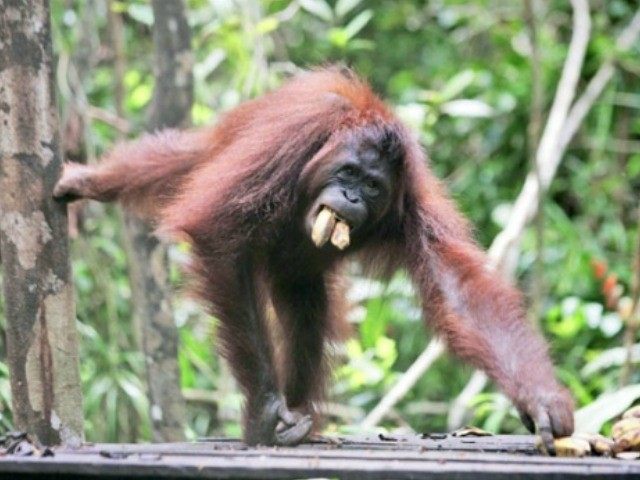The Argentine Court of Criminal Appeals has granted its first habeas corpus to an animal in captivity. The 29-year-old Sumatran orangutan named Sandra has been recognized as a “juridical person” and will be moved to a sanctuary in Brazil where she will live in semi-freedom.
Born in a German zoo, Sandra has lived for twenty years at the Buenos Aires zoo, but in an important global ruling, the Second Chamber of the Criminal Appeals Court has granted Sandra habeas corpus, resolving unanimously that Sandra enjoys basic rights after being declared a “non-human subject” who is illegally deprived of her freedom.
“From a dynamic rather than static legal interpretation,” the decision reads “it is necessary to ascribe to the animal the character of the subject of rights, since nonhuman subjects (animals) are rights-bearers, and thus their protection is guaranteed in the corresponding area.”
The court also said that in its reasoning it relied in part on two books written by Supreme Court justice, Eugenio Raúl Zaffaroni: his textbook titled Criminal Law, and his work The Pachamama and the Human. The latter is described as “a study of how nature and animals have been recognized or ignored in philosophical and juridical thought.” The book points to the examples of the new constitutions of Bolivia and Ecuador as models in this regard, “starting from a different paradigm from liberal anthropocentric constitutionalism.”
Habeas corpus had been denied to Sandra last November in a ruling by the criminal magistrate, who said that Sandra could not be recognized as a “non-human person,” as the Association of Functionaries and Lawyers for Animal Rights (AFADA) had requested. This ruling has now been overturned, and the appeals court has declared that Sandra’s captivity was an “unreasonable confinement of an animal with proven cognitive ability.”
Adrian Sestelo, the zoo’s chief biologist, strenuously disagreed with the court’s decision, and called the case for freeing Sandra “fundamentalistic,” made in total ignorance of “the natural behavior of the species.”
“Orangutans are solitary, tranquil animals that only come together to mate and care for their young,” Sestelo said. “Unjustifiably claiming abuse, stress or depression of the animal, out of ignorance of the biology of the species, is to fall into one of the most common mistakes of human beings, which is the humanization of any animal behavior. Sandra enjoys exceptional care and lives in solitude because it is required of her kind,” he said.
Constitutional law expert Daniel Sabsay regretted the absence of a more comprehensive legal basis in the appeals judgment. “The argument is very vague and based on a work that is not specific to these issues, ignoring the founded legal doctrine,” he said.
The Buenos Aires zoo has ten days to appeal the decision.
Follow Thomas D. Williams on Twitter @tdwilliamsrome

COMMENTS
Please let us know if you're having issues with commenting.